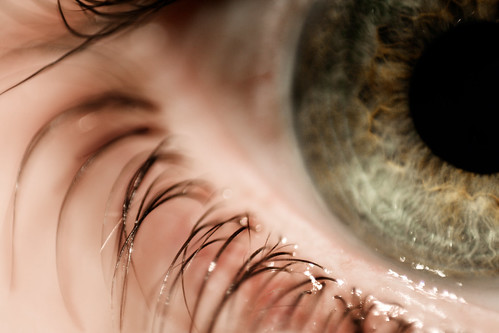I was surprised to find many recent studies about eye color. I thought I'd share some of the facts I learned. Here are some quotes from Wikipedia and the Eye Doctor Guide:
- The genetics of eye color are complicated and eye color is determined by multiple genes. The once-held view that blue eye color is a simple recessive trait has been shown to be wrong.
- Hazel eyes may contain specks of amber or gold, they usually tend to comprise many other colors, including green, brown and orange. Also, hazel eyes may appear to shift in color and consist of flecks and ripples; while amber eyes [which are considered different from "brown"] are of a solid gold hue.
- In 2008, research revealed that people with blue eyes have a single, common ancestor. Scientists tracked down a genetic mutation that leads to blue eyes. The mutation occurred between 6,000 and 10,000 years ago; researchers state that before then, blue eyes did not exist.
- Violet eyes result when there is not enough pigment in the eye to color the blood vessels so they shine through causing a violet like color.


2 comments:
That's pretty interesting. I never knew that violet as an eye color was actually real. I always thought it was a random contact lens trend.
And go figure, the most wanted baby: blonde hair blue eyes, is that of a genetic mutation....think what this information would do for those parents who are already wanting to pick out the traits of their future child via recent scienific developments.
People who want to genetically engineer their children probably would not be effected by this news.
Research that indicates that blue eyes are a mutation would lead one to consider blue eyes as a more adaptive trait. Their desirability may reflect a potential for greater reproductive fitness, i.e. blue eyed people are considered more attractive therefore they have a better chance of passing on their genetic material to the next generation.
Post a Comment